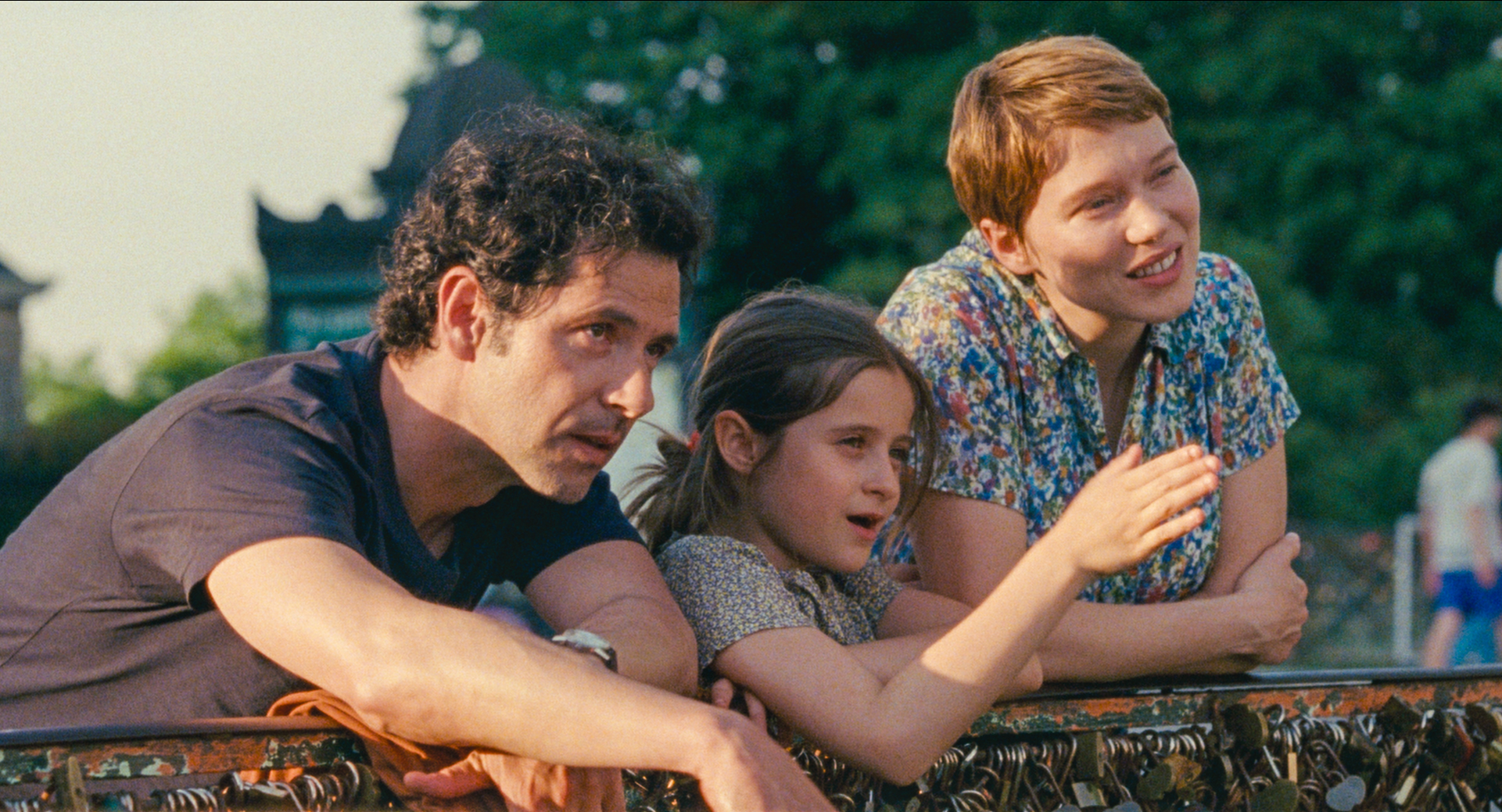
Soon enough, most adults must reckon with their parents’ physical and mental vulnerabilities, and it’s always a blow. Writer-director Mia Hansen-Løve’s delicately shaded One Fine Morning deals with the wrenchingly mundane nature of caring for those who used to take care of us. But it’s also about the difficulty—and the necessity—of tending to our own emotional lives even as we’re looking after others. That sounds so simple, you might not think it’s enough to fill a whole movie. Yet the end of One Fine Morning imparts a sense of life spilling over, the way its strange, radiant richness is often too much to analyze in the moment. This is a big movie served up in a surprisingly small, intimate package.
Léa Seydoux is Sandra, a translator living in Paris with her 8-year-old daughter Linn (Camille Leban Martins). Her husband has been dead for several years; she’s so devoted to her daughter and her work that she hasn’t given any thought to finding someone new. She runs into an old friend, Clément (Melvil Poupaud), a scientist, and after a pleasant, platonic dinner, he quizzes her about the state of things. “I just feel my love life is behind me,” she answers. Clément is married, with a child of his own, and he’s not trying to put the moves on Sandra, at least not yet. But he gives her a look that can barely be summed up in words—not pity, but a sad acknowledgment of another human’s lost opportunity. Before long, the two of them have tumbled into an illicit romance, and something inside Sandra kicks back to life.
But this sudden happiness is just a sidenote. Sandra’s father Georg (Pascal Greggory) suffers from a neuro-degenerative disease that has already robbed him of his sight and is now, increasingly, blurring his mind. A former philosophy professor whose life has always revolved around reading, he now spends his days alone in his book-lined apartment, a thirsty man surrounded by water he can’t drink. You also get the sense that he has always been a little remote as a father to begin with, but that doesn’t lessen the severity of the crisis when it’s determined that he can no longer live on his own. Sandra finds herself in the position of struggling to do the right thing by a father who, almost literally, now looks right through her.
Sandra herself seems to be in a bit of a nowhere zone, a place of transition she can’t seem to fight her way out of. Hansen-Løve’s best movies—Father of My Children, Eden—are quiet but sturdy reflections on people stuck in between, people who don’t seem to realize, or have forgotten, that the in-between is really all there is. One Fine Morning is in a league with these pictures, and Seydoux, with her watchful eyes and cautious smile, is perfect as a woman who once knew her way but has somehow lost it.
Late in the film, as Sandra goes about divesting Georg’s beloved library, giving much of it away to an adoring former student, she remarks that she feels closer to her father with his books than she does when she’s physically with him: “There, is his bodily envelope. Here, his soul.” In this movie about how the best times in our lives are sometimes entwined with the worst, that state of uneasy grace is as close as you can get to a happy ending.
More Must-Reads from TIME
- Donald Trump Is TIME's 2024 Person of the Year
- Why We Chose Trump as Person of the Year
- Is Intermittent Fasting Good or Bad for You?
- The 100 Must-Read Books of 2024
- The 20 Best Christmas TV Episodes
- Column: If Optimism Feels Ridiculous Now, Try Hope
- The Future of Climate Action Is Trade Policy
- Merle Bombardieri Is Helping People Make the Baby Decision
Contact us at letters@time.com